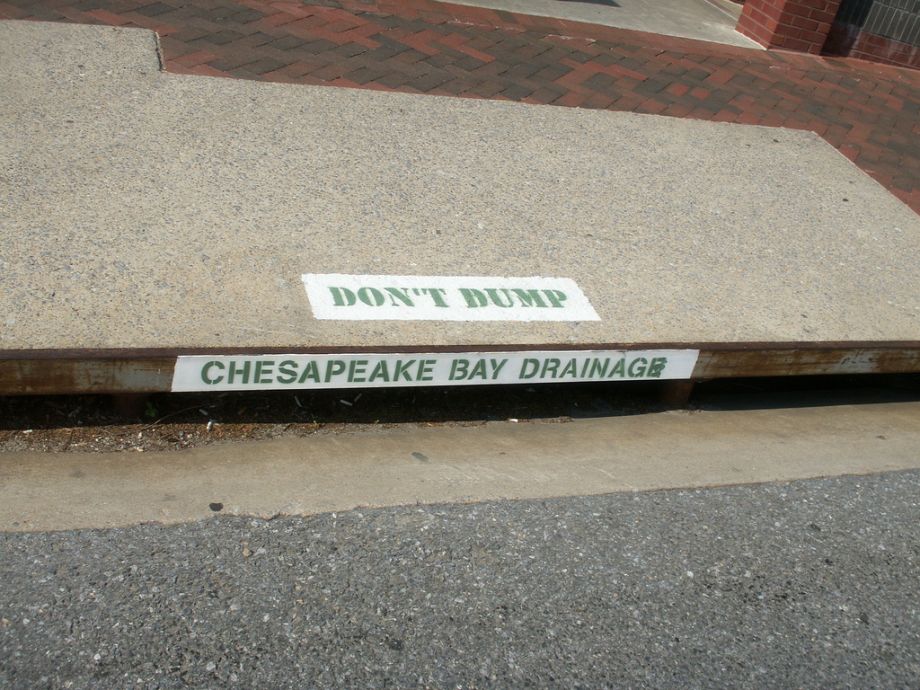A scourge of sewer systems is costing U.S. water agencies thousands of employee hours and millions of dollars. So-called “flushable” disposable wipes are clogging up wastewater treatment plants, causing equipment to break down faster, and even putting public health at risk by contributing to sewage spills.
“We estimate nationwide about $500 million to a billion a year [spent on the problem],” says Cynthia Finley, director of regulatory affairs for the National Association of Clean Water Agencies (NACWA), a trade organization representing municipal water utilities.
Across the country, cities have been tackling the problem by appealing to consumers and manufacturers to change their ways.
Now, in the D.C. metro area, the Metropolitan Washington Council of Governments (COG), which represents local governments and city agencies, has launched a public awareness campaign to educate customers about what can and can’t be flushed. “Protect Your Pipes” is already live online, and 13 water utilities and local jurisdictions have partnered on an ad campaign to run on D.C. Metro this spring.
“Members of our staff have had to deal with these problems every day,” says Nicole Kaiser, water communications coordinator for DC Water, talking about blockages in sewer mains and screens at treatment plants choked with wipes.
Other COG members have had to purchase expensive new equipment like grinders that chop up the wipes before they reach pumps, a stopgap solution that just sends debris farther down the line.
“We are trying to raise awareness as well as change consumer behavior around some of these practices that we know are bad for our customers. They are expensive, they are messy, and they are bad for people’s health,” says Kaiser. The campaign encourages people to throw wipes in the trash, instead of the toilet.
“Protect Your Pipes” ads will run on Metro buses and trains for about four weeks in mid-spring, funded by membership fees from all 13 agencies as part of an ongoing, collaborative community engagement campaign. Every year the group chooses an issue to focus on. Kaiser says sewer backup was a natural issue for the agencies to rally around, since it impacts the full range of the water system, from supply to wastewater, and both the problem and its solution are regionwide.
“What we’ve learned by working together for all these years is that our customers are regional, really. They live in one area, and work in another, and their kids may even go to school in another jurisdiction,” says Kaiser. “In terms of having one utility for each customer, it’s really not a reflection of what our customers are really doing.”
Learning from successful campaigns in other cities, “Protect Your Pipes” doesn’t point fingers at customers, but rather paints nondegradable objects as the enemy, and focuses on negative impacts to households.
“As much as we wanted to talk about all of the trouble it’s causing our sewer systems and municipal infrastructure … most of the campaigns have found the best success with looking at: What is the impact to the customer?” says Kaiser.
The most attention-grabbing impact is cost. This is a municipal problem, but it’s also a household risk. When pipes in the home become clogged with nonflushable items, it’s the homeowner’s, not the utility’s, expense.
“Protect Your Pipes” isn’t specific to flushable wipes either. The campaign also urges people not to flush fats, greases, oils or unwanted medications. These are all “end-user issues,” says Kaiser, that can only be addressed by educating consumers. Wipes make up just a third of all nondegradable objects clogging pipes, but they are the only ones advertised as “flushable,” so many point the finger at manufacturers too.
In Minnesota, seven cities and towns and two utilities have joined a class-action lawsuit against six wipes manufacturers, including Procter and Gamble and Kimberly-Clark, alleging that their products do not break down.
According to the complaint, cities are seeking a declaration from the defendants that their “flushable wipes do not degrade and are not sewer safe.” The complaint also seeks an order that companies cease advertising them as flushable, and the creation of a fund to compensate cities for the cost of their removal.
Attorney Garrett Blanchfield, partner at a law firm in Minneapolis that’s representing the cities, says the manufacturers have filed a motion to dismiss, essentially saying, even if everything claimed in the complaint is true, it’s not their fault.
Industry representatives told the Minneapolis Star Tribune that the problem was in user error, not the products themselves.
“[We have] empathy for the challenges the wastewater operators are having with nonflushable materials impacting their systems … . However, we take great exception to any effort to blame flushable wipes for the problems being caused by nonflushable wipes,” said Dave Rousse, president of the Association of Nonwoven Fabrics Industry (INDA), a trade group representing manufacturers of wipes and other like products.
NACWA is taking a different approach, trying to work with INDA, rather than against it, to develop new guidelines for the term “flushable.” A Federal Trade Commission consent order finalized in late 2015 already instructed one manufacturer (Nice-Pak Products) to stop advertising its wipes with the term. In a test, the wipe didn’t break down even after getting flushed 100 times.
Finley says solving the problem will require changes in how the industry conducts those tests. A common test called the slosh box sluices a wipe around in water. Effective, says Finley, but as it’s currently conducted, “there’s a lot of waves. It’s set up as whitewater rafting, whereas when it goes through the sewer it’s more like a lazy river.”
At this point, she says, while the effort to lobby manufacturers slogs on, educating the public may be the fastest route to solving the problem. NACWA’s own advocacy on this issue — including their “Toilets Are Not Trashcans” campaign — partially inspired the D.C. campaign.
“Utilities are already facing so many expensive problems,” says Finley. (Think old pipes and lead pipes — the dangers of which have been so vividly experienced in Flint.) “Utilities would rather spend the money replacing the infrastructure, upgrading, doing energy-efficiency projects … . There’s a lot better things they can spend their money on than unclogging pipes and taking wipes to the landfill.”
The Works is made possible with the support of the Surdna Foundation.
Jen Kinney is a freelance writer and documentary photographer. Her work has also appeared in Philadelphia Magazine, High Country News online, and the Anchorage Press. She is currently a student of radio production at the Salt Institute of Documentary Studies. See her work at jakinney.com.
Follow Jen .(JavaScript must be enabled to view this email address)



_600_350_80_s_c1.jpg)













